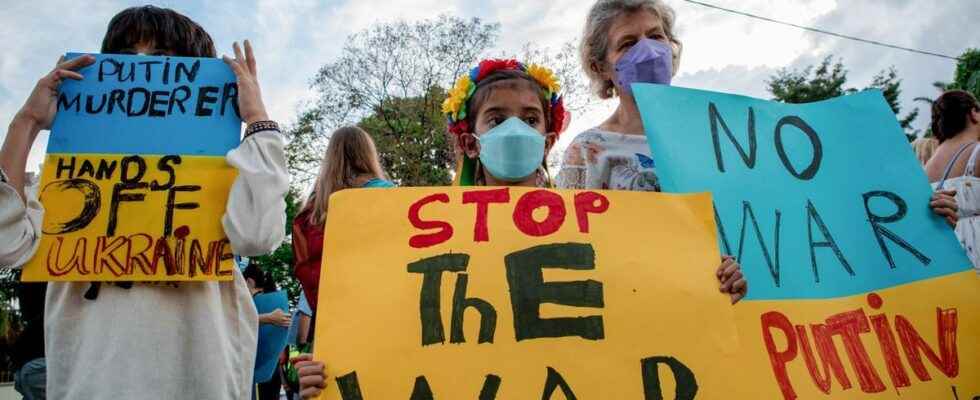Published ,
Reading 2 mins.
We have not yet come out of the Covid health crisis that a new crisis, political this time, is starting in Europe, between Russia and Ukraine. How does this war affect us psychologically? What anxieties can arise from this? The answers of Sabrina Philippe psychologist, member of the committee of experts of Doctissimo and author of the book “Tous fake self! This virtual world that makes us fake” at Trédaniel editions, to be published on March 10.
Doctissimo: Coming out of a health crisis, what is the mental impact of a war in Europe?
Sabrina Philip: It is already difficult to measure the psychological impact of the health crisis that we are still experiencing, since it is not over, that this new war is beginning in Europe. We are already weakened by the Covid crisis, and this is added to the anxiety-provoking period we have experienced. The fact that these events are not possible to circumscribe in time makes them have an even stronger impact. We really have the impression of living in a cursed period. What we have learned with the Covid crisis and which is valid for this political crisis as well, is to limit one’s access to continuous information, which contributes to increasing the anxiety-provoking effect of an event.
Does the distress of the affected populations and our inability to act increase this feeling?
Sabrina Philip: Again, this is an element that can play on our anxiety. In addition to not knowing when these events will end, we also see that we are powerless in the face of them. And you can’t change the fact of being powerless in the face of an event. We know: the psychological impact will not be the same between two people who are victims of a bank robbery, for example. The one who can prevent help will keep the feeling that she has done something, while the one who undergoes the event without being able to do something is psychologically more affected by the ordeal.
In the context of this conflict, we know that the stakes are beyond us, that the technologies used are powerful and beyond our reach… It’s different from the Second World War, for example, where it was a conflict of men. Today, that has changed. With progress, we are witnessing a conflict with economic and computer powers… over which we can do nothing.
Consult a therapist online
Can the unpredictability of Russia and more particularly of Vladimir Putin contribute to this anxiety?
Sabrina Philip: Obviously, this is an element that comes into play. European citizens, the French like the others, fear and are even afraid of the unpredictability of this man. We can even question his sanity, somewhere. This adds to the anxiety when one wonders how this person might act. Moreover, the Russian president also puts his interlocutors in difficulty, in particular the other heads of state who wish to find a solution to this conflict.
All these elements are likely to increase the anxiety-provoking climate around this war, indeed. And like every war, this one is not fought by a sane man. We can say that the Russian head of state is rather moved by a desire for omnipotence, to gain territory and contribute to the extension of his power.
Sabrina Philippe psychologist, member of the Doctissimo expert committee will publish her new book “Tous fake self! This virtual world that makes us fake” with Trédaniel editions, to be published on March 10th.
